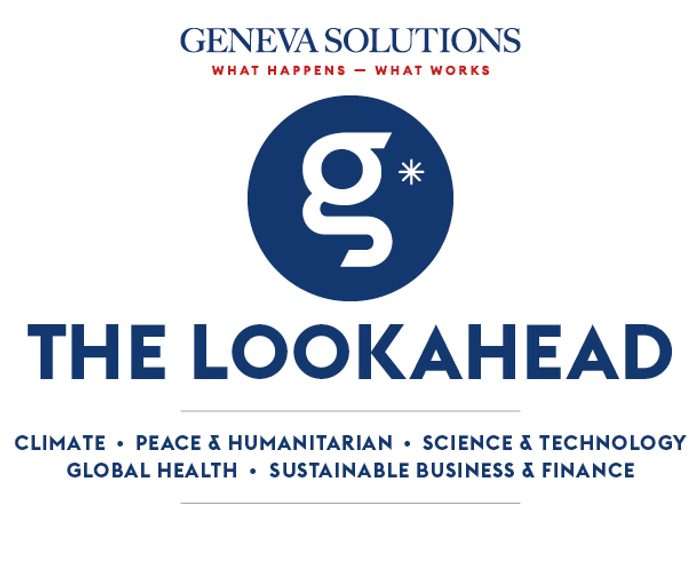Good morning, this is Michelle. The 7 October attacks and the retaliatory war in Gaza that ensued has rattled world politics. As the conflict escalates and threatens to set the region ablaze, the United Nations falters, incapable of offering a diplomatic solution to the crisis. But however flawed the system might be, it shouldn’t be a reason to abandon it, diplomats stress.
In other events, Geneva’s future-gazing organisation, Gesda, is coming up this week with its latest edition of the world’s biggest future trends that stand to transform society in the next five, 10 and even 25 years. We speak to the man behind it. |

Israeli Prime Minister Benjamin Netanyahu at the 79th session of the UN General Assembly at United Nations Headquarters in New York, 27 September 2024. (Keystone/EPA/Stephani Spindel)
|
|

Michael Hengartner, president of Gesda’s academic forum and chair of the ETH Board, speaks at the Swiss National Supercomputing Centre in Lugano, 14 September 2024. (Courtesy of Gesda)
|
|
Here's what else is happening
-
🇸🇦‘A slap in the face to victims of abuse’: UN urged to reject Saudi Arabia’s bid to join Human Rights Council.
Rights campaigners say Riyadh's rights abuses, including killing hundreds of Ethiopian migrants, jailing women rights advocates and murdering its detractors, disqualify it from holding a seat in the prestigious UN body in Geneva.
The Guardian (EN)
-
✉️Exclusive: UN tones down Gaza advocacy on terror anniversary.
UN agencies sent out internal directives, instructing their teams not to use the 7 October anniversary in their fundraising and communications campaigns about Gaza, given the sensitivity of the date for Israeli society.
Devex (EN)
-
🪖UN aid workers fear same ‘spiral of doom’ in Lebanon as Gaza.
World Food Programme and other UN officials warned that Israel's military tactics, which have led to significant civilian casualties in Gaza, are now being deployed in Lebanon.
Reuters (EN)
-
💉Amid escalating conflict in northern Gaza, WHO appeals to Israel for ‘pause’ to enable polio vaccination campaign.
The second round of polio vaccinations for Gaza's children is set to start on Monday, but the WHO is worried about the impact of Israel's renewed military activity in northern Gaza, including recent hospital evacuation orders.
Health Policy Watch (EN)
-
🚬NGO accuses tobacco industry and Switzerland of human rights violations.
The production and marketing of addictive and deadly products violate the right to health and other human rights, according to a report by anti-tobacco NGO OxySuisse.
Swissinfo (EN)
|
|
GS news is a new media project covering the world of international cooperation and development. Don’t hesitate to forward our newsletter!
Have a good day!
|

|
|
Avenue du Bouchet 2
1209 Genève
Suisse
|
|
|
|









